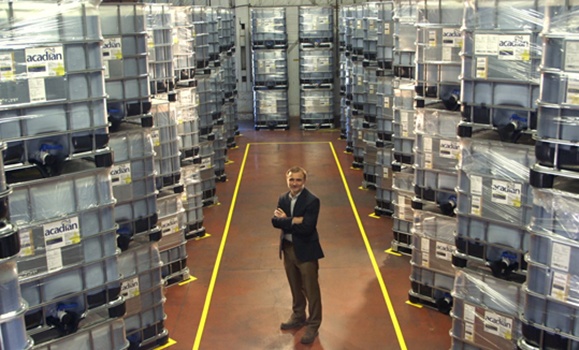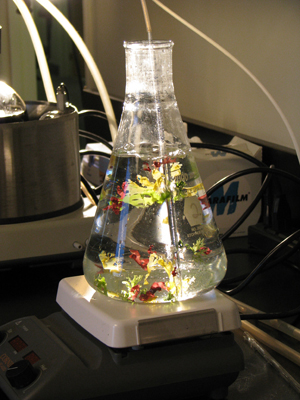
Committed to sustainability: Jean-Paul Deveau (BSc’79, BEng’81)
Once a small, family owned, seasonal seaweed harvesting operation, Acadian Seaplants Limited (ASL) is now a globally recognized leader in marine plant biotechnology, specializing in the cultivation and processing of seaweed products for people, animals and plants. At the head of ASL is president and CEO, Jean-Paul (JP) Deveau (BSc’79, BEng (TUNS)’81), an individual committed to the success and sustainability of the seaweed industries in Nova Scotia, New Brunswick, Maine, Ireland and Scotland.
Born in Moncton, but growing up in Dartmouth, Deveau and his father, Louis, and grandfather are the pioneers of seaweed applications in Nova Scotia. The younger Deveau grew up watching his father and grandfather spread seaweed on vegetable crops. An excellent source of nutrients for plants, Louis soon began developing products processed from seaweed. In 1981, Louis established ASL.
“My father and I learned we could work together, a very important thing,” says Deveau. “In 1986, he asked if I wanted to see what we could build together, also something I never forgot: ‘If you can’t do the job, I’ll have to fire you. You’ll always be my son and I’ll always love you, but that’s business, that’s how it works.’ I became president in 2002, the year we built our Research Center.”
 ASL’s two main divisions are plant health and human & animal wellness. The company exports 95 per cent of its products to over 80 countries around the world. It employs 360 staff members in 13 countries, operate six major manufacturing facilities in Atlantic Canada, Ireland and Scotland and works with over 700 harvesters in Nova Scotia, New Brunswick, Maine, Ireland and Scotland.
ASL’s two main divisions are plant health and human & animal wellness. The company exports 95 per cent of its products to over 80 countries around the world. It employs 360 staff members in 13 countries, operate six major manufacturing facilities in Atlantic Canada, Ireland and Scotland and works with over 700 harvesters in Nova Scotia, New Brunswick, Maine, Ireland and Scotland.
With over 10,000 species of seaweed, ASL offers a wide variety of products. The company specializes in creating biological seaweed extracts for global agricultural and horticultural markets and technical feed supplements for animals. Seaweed extracts are used in plant and crop inputs and are designed to enhance agricultural and horticultural crop productivity, plant vigor, plant nutrition and crop fertility, through seaweed-based crop biostimulants and nutritional inputs. Their natural, marine-plant based prebiotic, Tasco, is the premium feed ingredient incorporated into feeding programs for production and show animals, pets and equine.
ASL also produces seaweed for human consumption and a variety of everyday products. Edible seaweed is primarily shipped to Japan where seaweeds are eaten at nearly every meal. Although Canadians do not necessarily consider seaweed a daily mealtime staple, seaweed products and extracts are used in everyday household items. Irish moss, a species of seaweed, is used in products like toothpaste, ice cream, salad dressings, to name a few. Cosmetics, pharmaceuticals and several personal care products also contain extracts of seaweed’s functional ingredients provided by ASL.
Continue reading in Dal News for more about the industry changing research at Dalhousie’s Faculty of Agriculture.